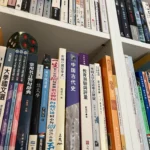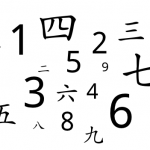Articles in the ‘Distinctively Chinese’ category
-
The 10 best free Chinese reading resources for beginner, intermediate and advanced learners
Reading is the best way to expand vocabulary and learn new things in Chinese. What are the best free resources out there for beginner, intermediate and advanced learners? This article collects and introduces the ten best free reading resources in each category!
Read → -
How to use mnemonics to learn Mandarin tones and pronunciation
Memory is a skill that can be practised, learnt, and mastered. By using the right method, remembering even abstract things like tones and pronunciation in Mandarin becomes possible, even easy!
Read → -
The best YouTube channels for learning Chinese in 2025
Videos are ideal for learning Chinese. The visual element makes the content more comprehensible and engaging, resulting in effective and enjoyable learning. But what videos should you watch? What are the best YouTube Channels?
Read → -
Don’t use mnemonics for everything when learning Chinese
Mnemonics are clever memory techniques you can use to learn and remember more, but this doesn’t mean that you should always use them. If you do, you will end up spending more time on mnemonics than you do engaging with the Chinese language.
Read → -
Student Q&A, December 2024: Learning similar Chinese characters, polyphonic characters, and flashcards vs. reading for building vocabulary
How can you remember the difference between similar Chinese characters? Are flashcards better than reading for building vocabulary? And how do you learn polyphonic characters?
Read → -
How to learn Zhuyin (Bopomofo) in two hours
Many people believe that learning a new script is challenging, but mastering systems like Zhuyin (Bopomofo) or Japanese kana is surprisingly easy. With the right approach and resources, you can do it in just a few hours!
Read → -
Do you really know how to count in Chinese?
Counting is one of the first things we learn in a foreign language, yet mastering it takes time. While basic numbers may seem simple, using them effectively in communication requires much more than just memorising words.
Read → -
Three things I wish I had known as an advanced student of Chinese: The time machine, part 3
Improving after you reach an advanced level of Chinese requires new ways of learning and new sources of motivation. If I could go back in time to give a less proficient version of myself advice, here is what I would say.
Read → -
Three things I wish I had known as an intermediate student of Chinese: The time machine, part 2
Traversing the intermediate Chinese learning plateau requires a shift in focus. Here are three pieces of advice for intermediate students of Mandarin.
Read → -
Three things I wish I had known as a beginner student of Chinese: The time machine, part 1
I started learning Chinese more than 15 years ago. Here are three things I wish I had known as a beginner!
Read →









